
Carolyn Gramling
Earth & Climate Writer, Science News
Carolyn is the Earth & Climate writer at Science News. Previously she worked at Science magazine for six years, both as a reporter covering paleontology and polar science and as the editor of the news in brief section. Before that she was a reporter and editor at EARTH magazine. She has bachelor’s degrees in Geology and European History and a Ph.D. in marine geochemistry from MIT and the Woods Hole Oceanographic Institution. She’s also a former Science News intern.

All Stories by Carolyn Gramling
-
 Climate
Climate2024 set new record for hottest year, passing a dangerous heat threshold
For the first year in recorded history, Earth’s average temperature topped 1.5 degrees Celsius above preindustrial levels.
-
 Climate
ClimateMeet Chonkus, a mutant microbe that could help fight climate change
A hulking marine cyanobacterium, Chonkus has traits that appears to make it especially good for storing away carbon on the ocean floor.
-
 Earth
EarthEarthquakes upped the death toll at Pompeii
Broken bodies found at a house in Pompeii suggest that earthquakes played a role in the legendary tragedy.
-
 Earth
EarthSurprise! The jet stream can trigger cloud formation
Most cloud-seeding particles may come from a newly discovered mechanism — stratospheric intrusion.
-
 Space
SpaceSummer ‘space hurricanes’ are emerging high above Earth’s magnetic poles
A separation — and later recombining — of Earth’s magnetic field lines may be what churns up these super-high-altitude storms of plasma.
-
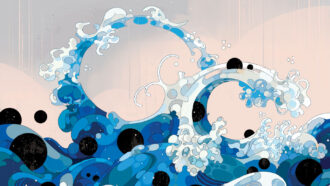 Climate
ClimateStashing more CO2 in the ocean could slow climate change
More research is needed on ways to safely remove some CO2 from the water to make room for more — such as by seaweed farming and iron fertilization.
-
 Earth
EarthHawaii’s Kilauea volcano recently erupted like a stomp rocket
This appears to be a newfound type of eruption. It could only be recognized because of the extensive monitoring of Kilauea's crater.
-
 Climate
ClimateClimate change is changing how scientists measure time
Polar ice sheets are melting faster. This is slowing Earth’s spin, which changes how we sync our clocks to tell time.
-
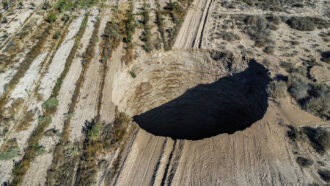 Earth
EarthMany natural underground stores of freshwater are shrinking
A lot of these aquifers are quickly disappearing due to climate change and overuse. Fortunately, there is growth in some of the world’s major aquifers.
-
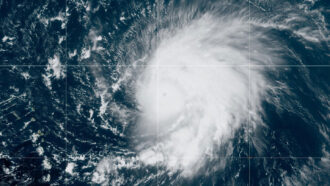 Oceans
OceansExplainer: Why are so many hurricanes strengthening really fast?
This dangerous trend appears relatively new — and growing. Studies also have begun linking it to our warming world.
-
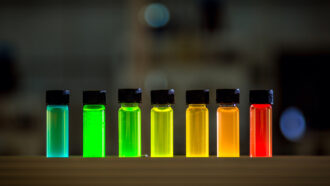 Chemistry
ChemistryCreation of quantum dots wins 2023 chemistry Nobel
The award honors three scientists who discovered and built quantum dots, which are now used in everything from TVs to medical tools.
-
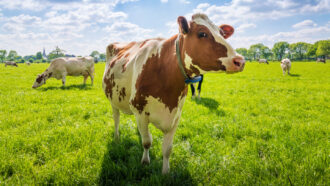 Agriculture
AgricultureCow dung spews a climate-warming gas. Adding algae could limit that
But how useful this is depends on whether cows eat the red algae, a type of seaweed — or it gets added to their wastes after they’re pooped out.